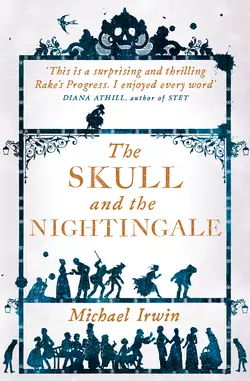The Skull and the Nightingale

Michael Irwin
Тип: электронная книга
Жанр: Современная зарубежная литература
Язык: на английском языке
Стоимость: 774.26 ₽
Издательство: HarperCollins
Дата публикации: 16.04.2024
Отзывы: Пока нет Добавить отзыв
О книге: Set in England in the early 1760s, this is a chilling and deliciously dark tale of manipulation, sex, and seduction.When Richard Fenwick, a young man without family or means, returns to London from the Grand Tour, his wealthy godfather, James Gilbert, has an unexpected proposition. Gilbert has led a fastidious life in Worcestershire, but now in his advancing years, he feels the urge to experience, even vicariously, the extremes of human feeling—love and passion, adultery and deceit—along with something much more sinister. He has selected Fenwick to be his proxy, and his ward has no option but to accept.But Gilbert’s elaborate and manipulative “experiments” into the workings of human behaviour drag Fenwick into a vortex of betrayal and danger where lives are ruined and tragedy is always one small step away. And when Fenwick falls in love with one of Gilbert’s pawns and the stakes rise even higher – is it too late for him to escape the Faustian pact?